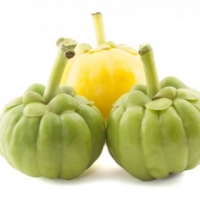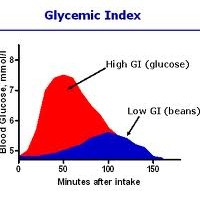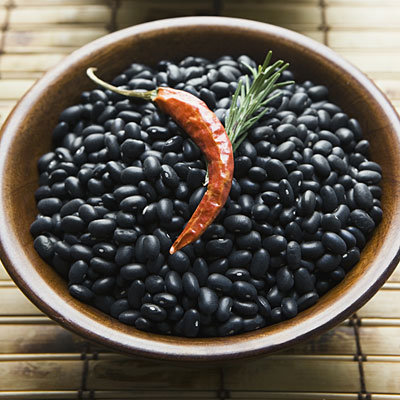Possible Pitfalls
There are as many reasons you've given yourself to eat as there are minutes in a day. Storm clouds do it for me. They trigger a memory from when I lived in Florida and went deep-sea fishing in Key West. When a squall was imminent, we'd pull our boat into a nearby atoll and wait out the storm while eating fresh fish sandwiches and drinking cold beer. Sandwiches are finger foods, which I now steer clear of, and I don't drink beer anymore, but the smell of a rainstorm can be a powerful pitfall for me. I don't act on it, but the memory is a tantalizing trigger, nevertheless.
A splash of red wine on white pants may not trigger an overeating episode nor will the car not starting, a flat tire, and your cell phone losing a signal at 4:58 p.m. when you must reach someone before 5:00 p.m. But these things have a cumulative effect, and all the mini-annoyances have the potential of becoming maxi-eating responses by the end of the day.
You might stumble because you saw your favorite dessert on a restaurant menu. Or a celebration may convert a tentative no to an emphatic yes as soon as you hear a champagne cork pop from a bottle.
"I could resist anything but temptation," said Oscar Wilde.
Consider the reasons you're tempted to eat. Highlight or circle the ones to which you respond. There are many and they are varied.
Do you eat because you're hungry? Do you even know what hunger is? Or are you eating because you're lonely, tired, angry, or bored?
Think of all the reasons you eat that have nothing to do with hunger.
Perhaps you eat because you're up: it's your birthday, my birthday, our anniversary, or Groundhog's Day; or because you're down: sad, or grieving. You might eat because it's there, or someone else is eating so why not you? Is food easily available in your office, your home? Do you eat in your car?
Are you eating because of good news? Bad news? No news? One man said he eats during the news.
You might find yourself eating some foods because they came with a restaurant dinner or others because they came free with your airplane ticket or hotel room. There's bread on the table in a restaurant, peanuts on the plane, chocolates on your pillow, and you think: I'll never pass this way again.
To some, food is seen as a reward: I've been so good all day. I didn't have breakfast. I didn't have lunch. I'll just have this side of beef for dinner. Of course, if you're feeling stuffed, bloated, and not so good about yourself, then overeating is not a reward. It is a punishment.
When a young woman used the excuse that she overate prior to going to the ballet, I asked, did you dance? Unless she was dancing on that stage, she ate too much for dinner. She ate more than she was able to burn.
For many, food has become a socially acceptable drug. It seems to numb the tensions and stresses of your life. Perhaps you use food to stuff down feelings and thoughts you don't want to feel or think or to escape.
Do you eat when you're frustrated, disappointed, or angry? One fellow told me he knocked off a box of cookies and a pint of ice cream when the courts awarded his ex-wife a big divorce settlement. I wanted to know if she had returned the alimony check when she realized he was hurting himself.
Although eating doesn't change the outcome of anything but your waistline and self-esteem, you might still be eating to cheer yourself up when you're down. Or not to feel so alone when you're without company. Or to socialize: you don't want to be left out. You might continue eating even though your clothes are too tight and you're huffing and puffing when you walk. That is part of addiction: you continue doing what you do even though there are negative consequences.
Perhaps you eat because you're bored or have to fill unstructured time, such as evenings and weekends, or because you experience family, business, money, or peer-group pressure: ("Come on. We're all going for pizza and we want you to come.") You don't want to be left out. You might use food to avoid intimacy or sex. Perhaps you use food to avoid nurturing or being nurtured. You are procrastinating: ("I'll have lunch first and then work on that report.")
You might eat during food preparation and put-away. Perhaps because once you start you can't stop. You might think, what the hell, I blew it anyway. Maybe food is used as a reward because you did something wonderful, or a punishment because you already overate and figure What the hell, it won't make a difference. When you smell the coffee in your office or the popcorn in a movie, or fresh donuts in a bakery, do you queue up? Do you use food as a meal extender? You're having such a nice time and don't want the evening to end so you order another cup of coffee, a cocktail, a dessert. You're entertaining guests. There is an abundance of extra food and all those leftovers.
Going home to family is tricky for some. You may feel guilty that your family and friends have been cooking since last Thursday, and you have to taste (and comment on) everything that is offered. Does the cook get offended if you don't have seconds and thirds?
We eat differently when we are in the company of two people, three people, four people, more people. A recent study said that people who eat with six or more other people consume a whopping 78% more than they would if they ate alone. The more people there are, the more food is offered.
The longer food remains on the table, the longer you're tempted to eat.
Are you too tired to cook so you pick pick pick and convince yourself you didn't eat anything?
A point to remember:
If it's not water, it's food.
And this, too:
If you swallowed it, you ate it. It all adds up.
Whether you overeat because of genetics, ethnicity, religion, circumstance, or emotion doesn't matter. Perhaps you eat for some of these reasons or all of these reasons. Each person gets into the habit of using food inappropriately by eating for reasons you tell yourself it's okay to eat, even if you're not hungry. Having followed these habits for such a long time - sometimes decades - they've become involuntary conditioned responses. Just as Pavlov's dogs, when a stimulus appears, can a yes, thank you, be far behind? The intelligent you, thinks you shouldn't be doing what you're doing, but you can't stop. That's the sneaky part of the addiction - as if making up your mind will do the trick when it never has before. This might be the moment to make a list of the reasons you eat. Put down the breadstick and get a pencil.
After seeing my list, a middle-aged woman said to me, "According to your program, I haven't been hungry since 1963." She was correct. She and you may have misidentified these situations, circumstances, and emotions as hunger for such a long time, you've lost your innate ability to identify this most basic of feelings.
If you're trying to satisfy a physical hunger, your body doesn't require a great deal of food. If you're trying to fill an emotional hunger, you could back up a truck full of food to your home or office, and it would never, ever, contain enough food. "Okay guys, put the Mallomars in the cabinet, the H鋋gen-Dazs in the freezer. The Twinkerdoodles go on the bed."
If you become so overwhelmed, confused and paralyzed with not knowing what to do about this multi-faceted, many-layered topic of weight control that you can't stop eating once you start, chances are you do nothing.
If hungry, you need to nourish the body. If, along the way, it also tastes good, looks good, and smells good, you've got a bonus. But you shouldn't be eating because it looks, smells, and tastes good. Almost everything fits that criteria.
If you're thirsty, drink water.
If you're responding to one of the above stimuli, change habits by creating new and constructive responses to replace your old and destructive ones. This is called repatterning.
I might have missed one of your Possible Pitfalls, but you get the idea. Add yours if it's not here. Observe how you eat when you're up or down, alone or with friends. We even eat differently with men, differently with women, and another way with children. These pitfalls might be because of emotions, circumstances, or just because it's there or you're there, in the neighborhood where your favorite something is prepared as nowhere else in the world! Pitfalls can be any of these things or all of these things.
None of the Pitfalls I've described above are hunger. And if it's not hunger, it's not a reason to eat.
What are your Possible Pitfalls?
About The Author
This article is an excerpt from the book Conquer Your Food Addiction published by Simon and Schuster. Caryl Ehrlich, the author, also teaches The Caryl Ehrlich Program, a one-on-one behavioral approach to weight loss in New York City. Visit her at http://www.ConquerFood.com to know more about weight loss and keep it off without diet, deprivation, props, or pills.
[email protected]
-
What ways can be detoxification and burning fat
With waste discharges, weight will quietly drop! Today do you detox ye
-
Weight Loss Secrets - Weight Loss Program
In this day and time it is important to be real in our thinking when i
-
Motivation To Lose Weight And Exercise
If youve ever been on a good weight loss progra
-
How To Exercise To Lose Fat? Try The Best Workout To Lose Weight Just 30 Minutes Per Week!
CLICK HERE NOW to DOWNLOAD The Fat Burning Furnace Program and Lose 20
-
How To Slim Down Fast
Losing weight has grown right into a nationwide craze. New diet spe
-
Baby Fat and Muffin Top are Really Sugar Tops
- DON'T MISS
- Your Body and the HCG Hormone Battle the Obesity Together
- Get This 6 Week Fat Loss Report & Burn More Fat Than You Would If You Just Plain Starved Yourself!
- Nutritious Ladies Nutritional Diets to Lose Weight
- Holistic Approach towards Weight Loss
- Get Flat Abs In A Week - Belly Fat How To Lose It with Supercharged Results
- Lose 21 Pounds in 3 Weeks - How to Lose 18-23 Pounds in 3 Weeks
- Diet Menu To Reduce Weight
- How Women Over 30 Can Maintain a Healthy Diet and Continue to Stay Attractive
- Burn That Belly Fat With The African Mango Diet
- Fat Burning Furnace Torrent-avoiding people from being malnourished




